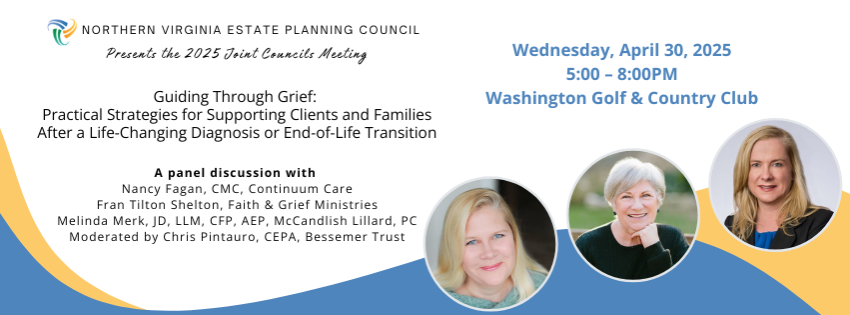Decision in Kaestner: How Far Can States Go to Tax Discretionary Trusts?
|
NVEPC is invited to join the Washington DC Estate Planning Council for their Membership Meeting, "Decision in Kaestner: How Far Can States Go to Tax Discretionary Trusts?" on Monday, July 15, 2019. Anna Moody, Esq., of Debevoise & Plimpton LLP will be presenting at this meeting. About the Presentation: On June 21st, the Supreme Court handed down a unanimous decision in favor of the Kaestner 1992 Family Trust, stating that North Carolina may not tax the trust solely on the basis of the beneficiaries’ residence in that state. The trust was wholly discretionary, created by a New York grantor, administered by Trustees outside of North Carolina, had no investments in North Carolina, and made no distributions to the beneficiaries during the years at issue. Under these circumstances, the residence of the beneficiaries as the sole nexus to tax the trust was deemed in violation of the Due Process Clause of the Fourteenth Amendment. Anna Moody and her team at Debevoise represented the Trust. Please join us as she discusses this timely case. About the Speaker: |
|
|
Anna Moody is a counsel in Debevoise & Plimpton's Litigation Department, in the Washington, D.C. office. Her practice focuses on securities-related enforcement defense, SEC examinations, internal investigations and white collar criminal defense. She also has significant experience representing corporate clients and their officers and directors in securities class actions and shareholder derivative litigation. Ms. Moody joined the firm in 2009. From 2010 to 2011, she clerked for the Hon. James G. Carr, U.S. District Court for the Northern District of Ohio. Ms. Moody received a J.D. from Columbia University, where she was a Harlan Fiske Stone Scholar and head articles editor of the Columbia Journal of Transnational Law. She also has an active pro-bono practice. Meeting Details:
|
|
Cancellation Policy: Guest registrations can be cancelled up to three (3) business days before the event, and must be in writing via email. If the NVEPC member, or their guest, does not cancel the guest’s event registration or does not attend the event, then the NVEPC member will be charged the full guest fee.
 Anna Moody, Esq., Debevoise & Plimpton, LLP
Anna Moody, Esq., Debevoise & Plimpton, LLP